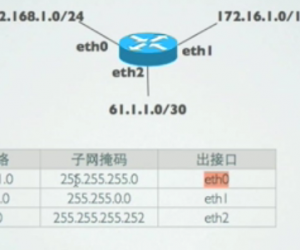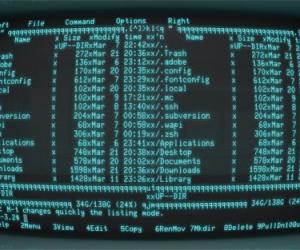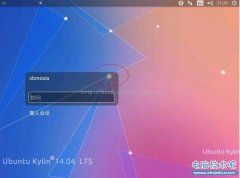OSSEC Monitor your App log file
发布时间:2014-09-05 14:00:17作者:知识屋
OSSEC Monitor your App log file
OSSEC monitors system logs with build-in support, and does a good job. Don't forget OSSEC is also can monitor the custom log file like our app's log. You have to create your own decoder and rule for that.
Add the log file you want to monitor to ossec.conf
Open up
[plain]
/var/ossec/etc/ossec.conf
and add below block in.
[html]
<localfile>
<log_format>syslog</log_format>
<location>/var/log/my_app.log</location>
</localfile>
Create a custom decoder
OSSEC uses decoders to parse log files. After it finds the proper decoder for a log, it will parse out fields defined in /var/ossec/etc/decoders.xml, then compare these values to values in rule files - and will trigger an alert when values in the deciphered log file match values specified in rule files.
Decoders exist on the servers, not the agents. Custom decoder should be added to /var/ossec/etc/local_decoders.xml on the server.
The log I want to trigger an alert for looks something like this:
[html]
2010-09-25 15:28:42 [node-test]IP:192.1.1.1@reboot.
2010-09-25 15:28:52 [node-test]IP:192.1.1.1@reboot.
2010-09-25 15:29:52 [node-test]IP:192.1.1.1@reboot.
2010-09-25 15:39:52 [node-info]IP:192.1.1.1@reboot.
2010-09-27 16:39:52 [node-info]IP:192.1.1.1@reboot.
Open up /var/ossec/etc/local_decoder.xml (you can also use decoder.xml, which already exists, but using local_decoder.xml will assure that you don’t overwrite it on upgrade). First, we want to create a decoder that will match the first part of the log entry. We’ll use the date and first few characters to grab it using a regular expression.
The decoder file like below:
[html]
<decoder name="nodeerror">
<prematch>^/d/d/d/d-/d/d-/d/d /d/d:/d/d:/d/d [node-test]</prematch>
</decoder>
<decoder name="nodeerror-alert">
<parent>nodeerror</parent>
<regex offset="after_parent">IP:(/d+./d+./d+./d+)@(/w+)</regex>
<order>url,action</order>
</decoder>
Save your local_decoder.xml and let’s run the log file through ossec-logtest.
[plain]
#/var/ossec/bin/ossec-logtest
[html]
2010-09-25 15:28:42 [node-test]IP:192.1.1.1@reboot.
**Phase 1: Completed pre-decoding.
full event: '2010-09-25 15:28:42 [node-test]IP:192.1.1.1@reboot.'
hostname: 'pms-srv01'
program_name: '(null)'
log: '2010-09-25 15:28:42 [node-test]IP:192.1.1.1@reboot.'
**Phase 2: Completed decoding.
decoder: 'nodeerror'
url: '192.1.1.1'
action: 'reboot'
**Phase 3: Completed filtering (rules).
Rule id: '700006'
Level: '8'
Description: 'reboot happens!'
**Alert to be generated.
Looks good! It found our decoder and extracted the fields the way we want ‘em. Now, we’re ready to write local rules.
Write custom rules
Open /var/ossec/rules/local_rules.xml, and add below in.
[html]
<rule id="700005" level="0">
<decoded_as>nodeerror</decoded_as>
<description>Custom node Alert</description>
</rule>
<!-- Alert -->
<rule id="700006" level="8">
<if_sid>700005</if_sid>
<action>reboot</action>
<options>alert_by_email</options>
<description>reboot happens!</description>
</rule>
Save your local_rules.xml file, Now, we are ready to restart OSSEC and check alert.
(免责声明:文章内容如涉及作品内容、版权和其它问题,请及时与我们联系,我们将在第一时间删除内容,文章内容仅供参考)
相关知识
-

linux一键安装web环境全攻略 在linux系统中怎么一键安装web环境方法
-

Linux网络基本网络配置方法介绍 如何配置Linux系统的网络方法
-
Linux下DNS服务器搭建详解 Linux下搭建DNS服务器和配置文件
-
对Linux进行详细的性能监控的方法 Linux 系统性能监控命令详解
-
linux系统root密码忘了怎么办 linux忘记root密码后找回密码的方法
-
Linux基本命令有哪些 Linux系统常用操作命令有哪些
-
Linux必学的网络操作命令 linux网络操作相关命令汇总
-

linux系统从入侵到提权的详细过程 linux入侵提权服务器方法技巧
-

linux系统怎么用命令切换用户登录 Linux切换用户的命令是什么
-
在linux中添加普通新用户登录 如何在Linux中添加一个新的用户
软件推荐
更多 >-
1
 专为国人订制!Linux Deepin新版发布
专为国人订制!Linux Deepin新版发布2012-07-10
-
2
CentOS 6.3安装(详细图解教程)
-
3
Linux怎么查看网卡驱动?Linux下查看网卡的驱动程序
-
4
centos修改主机名命令
-
5
Ubuntu或UbuntuKyKin14.04Unity桌面风格与Gnome桌面风格的切换
-
6
FEDORA 17中设置TIGERVNC远程访问
-
7
StartOS 5.0相关介绍,新型的Linux系统!
-
8
解决vSphere Client登录linux版vCenter失败
-
9
LINUX最新提权 Exploits Linux Kernel <= 2.6.37
-
10
nginx在网站中的7层转发功能
























